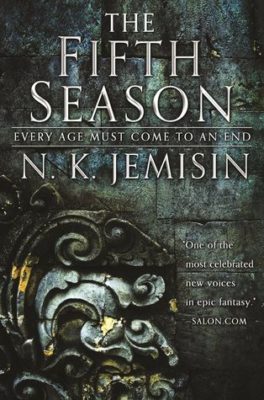 So first, a story about this book from way back in…2017? 2018, maybe.
So first, a story about this book from way back in…2017? 2018, maybe.
I’m in the middle of interviewing for a new job, and am close to the end of the final day of interviews. The interviewer happens to know my former boss and so we were vibing, sharing stories. He proceeds to ask me what I do for fun, signalling that the interview is almost up. No problemo, I think, time to pull out the ol’ standby–I read, I say, I’m a reader.
What’s the last book I’ve read? I…uh…
Reader, that is the moment I realized I couldn’t name a single book I’d read in years. I’m not sure I had read a book in years. I couldn’t think of a single book that would seem reasonable (one cannot say To Kill a Mockingbird or Pride and Prejudice after claiming to be a reader). So I went with a genre, one that I was certain would keep me away from trouble. “Afrofuturism,” I say, because that’s a niche one right? “There’s this great book The Fifth Element that I’m about to start.”
“The Fifth Element?” he says, confused:

To wrap this up, he suggested Binti, I read it that night out of sheer embarrassment, and then I started reading again. But I didn’t get around to this book, the properly titled The Fifth Season until earlier this year because it’s…not an easy book to get into. The second person narration is hard to wrap your mind around and everything is confusing in the beginning of a book when there’s no world built so to speak. But I have been down this road before with Jemisin, and I knew that if I stuck it out I would be rewarded.
And rewarded you are–this, of the three books, is the only one to feature a “twist” of sorts, that maybe others can see coming but I definitely did not and was super taken in by. Once the plot gets humming, it really does get humming. Jemisin’s world building is detailed and precise, like a narrow, deep torus, with just enough detail and embellishment to keep you guessing while giving you enough clues to feel like a reveal is earned.
If you were like me and didn’t want to continue reading this because of the second person narration, I would highly recommend pushing past that. I was a lackadaisical reader for the first part of this book, and then suddenly I was just rushing through the rest of it.
To give the plot in some broad, broad strokes: a post-apocalyptic Earth? Other planet? Alternate universe? (it is unclear) is wracked by cataclysmic, humanity-threatening earthquakes every so often–the so called “Fifth Seasons” of the title. During these Fifth Seasons, everyone stops all the fancy nonsense they were doing previously (art, culture, community) and gears up for one task and one task only: survival.
In this world are also people called orogenes, who can control earthquakes and the motion of the earth. Far from being revered for their powers, they are reviled. Our story follows three such orogenes, who are trying to deal with the consequences of their powers. If undiscovered by the ‘Fulcrum,’ the centralized training location that is only concerned with what’s best for the orogenes (three guesses as to whether that is true), orogenes usually are killed by superstitious villagers when they inadvertently use their powers. If captured found by the Fulcrum, orogenes are taken in to be trained into tools of the Empire.
I guess when written out like this it’s hard to explain exactly what was so captivating about this world, which is pretty bleak and hard scrabble. The main plot drive comes from an earthquake/Fifth Season that is so terrible it looks like humanity might actually be at an end, and the lengths to which our main characters will go to survive and thrive in that situation. You won’t be able to stop from reading the next one, in my opinion!
